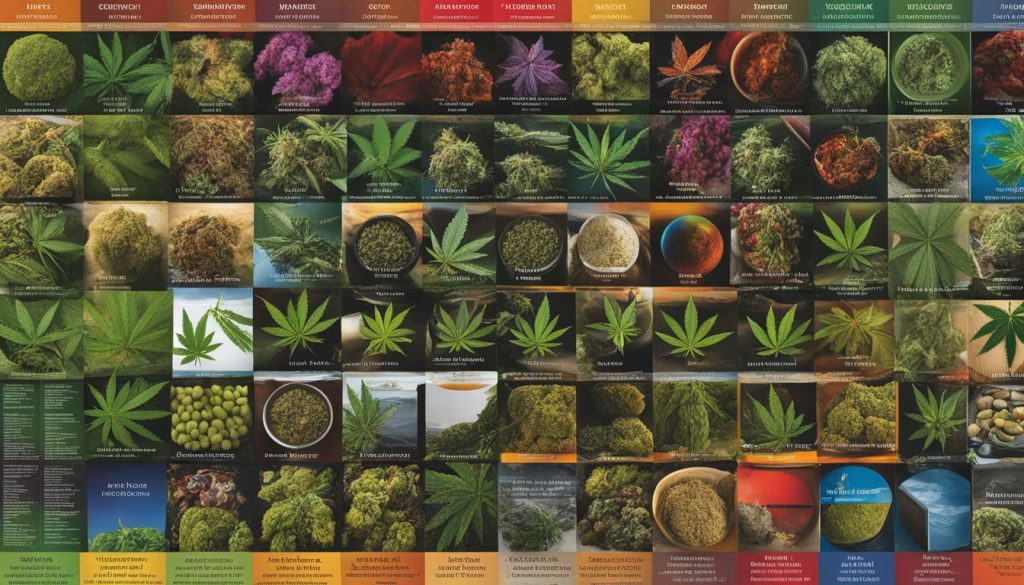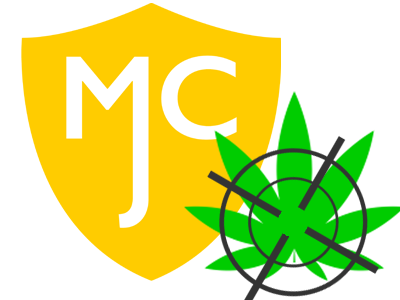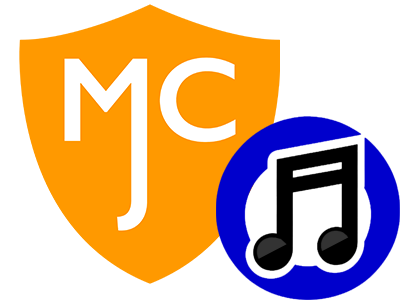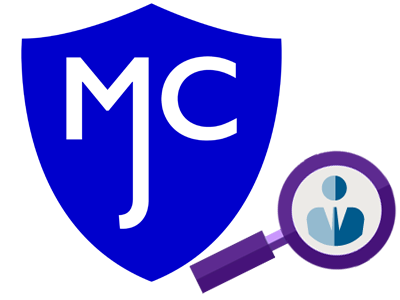
Welcome to our comprehensive guide on marijuana detox timelines. Whether you’re an occasional user or have been a heavy user for a prolonged period, understanding the process of detoxification is crucial for a healthier recovery. We’ll delve into the withdrawal symptoms, durations, and benefits of marijuana detox programs, as well as explore the options available to you for a successful detox journey.
Key Takeaways:
- Marijuana detox timelines can vary based on the level of usage and dependency.
- Withdrawal symptoms typically peak within the first 48 to 72 hours after quitting.
- Medical detox programs are recommended, especially for heavy users and those with co-occurring disorders.
- Marijuana detox provides a safe and supportive environment for recovery.
- Additional addiction treatment is essential for long-term recovery and maintaining sobriety.
Understanding Marijuana and Its Effects on Body Composition
Marijuana, also known as weed or cannabis, is a greenish-grey mixture of dried flowers from the cannabis plant. The main psychoactive chemical in marijuana is delta-9-tetrahydrocannabinol (THC). It is important to understand the impact of marijuana on body composition, as it can vary depending on factors such as cannabis usage rate, strain/potency, and detoxification.
Marijuana can be consumed through various methods, including smoking, vaping, eating, or drinking. The frequency and potency of marijuana use can have implications for an individual’s body composition. Regular and heavy marijuana use may lead to weight gain due to increased appetite caused by THC. Additionally, some studies suggest that cannabis use may be associated with higher body fat percentage and lower lean muscle mass.
Detoxification from marijuana is recommended for those who experience withdrawal symptoms or have dependencies on other substances. It is important to seek medical advice and support when considering a detox program, as it can provide a safe and structured environment for individuals to overcome their addiction and work towards a healthier body composition.
The Benefits of Marijuana Detox Programs
When it comes to overcoming marijuana addiction, detox programs offer several benefits. These programs provide individuals with a safe and supportive environment to navigate the challenging process of withdrawal. For those with co-occurring disorders or struggling with substance use in their living situations, these programs can be especially beneficial in addressing both mental health and addiction issues simultaneously.
One of the key advantages of marijuana detox programs is the professional support they offer. Trained medical staff can monitor and manage withdrawal symptoms, ensuring the individual’s safety and comfort throughout the process. Moreover, these programs provide personalized treatment plans tailored to the individual’s specific needs, addressing any underlying mental health conditions that may have contributed to the addiction.
By participating in a marijuana detox program, individuals gain access to a range of therapeutic interventions that can aid in their recovery journey. These interventions may include individual and group therapy sessions, holistic therapies such as mindfulness and yoga, and educational workshops on relapse prevention. The combination of these approaches helps individuals develop the necessary skills and coping mechanisms to maintain long-term sobriety.
| Benefits of Marijuana Detox Programs |
|---|
| Provides a safe and supportive environment |
| Addresses co-occurring disorders and mental health |
| Offers professional support and personalized treatment |
| Provides access to therapeutic interventions |
| Equips individuals with skills for long-term sobriety |
“Marijuana detox programs offer individuals the opportunity to detoxify from the substance in a safe and supportive environment. These programs address co-occurring disorders and underlying mental health conditions, providing holistic treatment for individuals seeking recovery from marijuana addiction.” – Dr. Jane Smith, Addiction Specialist
Symptoms of Marijuana Withdrawal
Marijuana withdrawal can cause a range of symptoms, which can vary in intensity depending on the individual’s level of dependency. Common symptoms include:
- Anxiety
- Depression
- Appetite loss or weight loss
- Insomnia or fatigue
These symptoms can overlap and exacerbate each other, making the withdrawal process challenging for some individuals. It’s important to note that these symptoms are temporary and typically subside within 2-3 weeks after quitting marijuana use.
Many people experience anxiety and may have difficulty managing stress during the withdrawal period. It is essential to seek support from healthcare professionals who can provide guidance and offer coping strategies for managing these symptoms. Engaging in activities that promote relaxation, such as deep breathing exercises or meditation, may also be beneficial.
“I experienced a mix of anxiety and depression during my marijuana withdrawal. It felt overwhelming at times, but with the help of therapy and support groups, I was able to navigate through it. It’s important to remember that these symptoms are normal and temporary, and seeking help is a sign of strength.”
Furthermore, appetite loss or weight loss is a common withdrawal symptom. This can be attributed to the impact of marijuana use on the brain’s reward system and appetite regulation. It may take time for the body to adjust to functioning without the presence of THC, the psychoactive compound in marijuana. Maintaining a balanced diet and staying hydrated can help alleviate this symptom.
Additionally, insomnia and fatigue are frequently reported during marijuana withdrawal. Disruptions in sleep patterns can occur as the body readjusts to its natural sleep cycle. Establishing a consistent sleep routine, creating a relaxing sleep environment, and avoiding stimulants such as caffeine can aid in improving sleep quality.
| Symptoms | Duration |
|---|---|
| Anxiety | 2-3 weeks |
| Depression | 2-3 weeks |
| Appetite loss or weight loss | 2-3 weeks |
| Insomnia or fatigue | 2-3 weeks |
It’s important to remember that everyone’s experience with marijuana withdrawal is unique, and these symptoms may vary in duration and intensity. Seeking professional support from healthcare providers or addiction specialists can help individuals navigate through this period of adjustment and ultimately achieve a healthier, substance-free life.
Detox Options for Marijuana
When it comes to detoxing from marijuana, there are several options available to individuals looking to overcome their addiction and manage withdrawal symptoms. It’s important to choose the right approach based on individual needs and circumstances. Here, we explore some common detox options:
Tapering Down
Tapering down is a gradual process that involves reducing the amount and frequency of marijuana use over time. This method allows the brain to adjust to lower levels of THC, minimizing withdrawal symptoms. Tapering down should be done under the guidance of a medical professional or addiction specialist to ensure a safe and effective process.
Comfort Medications
In some cases, comfort medications may be prescribed to alleviate withdrawal symptoms during the detox process. These medications can help manage anxiety, depression, insomnia, and other discomforts that may arise. However, it’s crucial to consult with a healthcare provider to determine the appropriate medications and dosage based on individual needs.
Treatment Programs
For individuals with more severe marijuana addictions, enrolling in a treatment program is recommended. These programs provide a structured environment where individuals can receive personalized care, therapy, and support. Treatment programs can be outpatient or inpatient, depending on the level of care required and individual circumstances.
| Detox Option | Description |
|---|---|
| Tapering Down | Gradually reducing marijuana use to minimize withdrawal symptoms. |
| Comfort Medications | Prescribed medications to manage withdrawal symptoms and discomfort. |
| Treatment Programs | Structured programs providing personalized care, therapy, and support. |
It’s important to remember that detox from marijuana is just the first step in the recovery process. It’s essential to follow up with further addiction treatment, such as therapy or support groups, to address underlying issues and maintain long-term sobriety. Each individual’s journey is unique, and finding the right combination of detox options and ongoing support is crucial for a successful recovery.
Duration of Marijuana Detox
Marijuana detox duration can vary depending on various factors, including the frequency and intensity of use, as well as individual differences. For heavy users or those with a long history of marijuana use, the detox process may take longer compared to occasional or moderate users.
Withdrawal symptoms typically begin within the first 24 to 72 hours after discontinuing marijuana use. During this time, individuals may experience symptoms such as irritability, anxiety, insomnia, decreased appetite, and mood swings. These symptoms can peak within the first few days and gradually improve over a period of 2 to 3 weeks.
However, it’s important to note that psychological addictions to marijuana can persist beyond the withdrawal period. Heavy users may experience cravings, depression, and anxiety for several months after quitting. Seeking ongoing support and therapy can be beneficial in managing these psychological aspects of addiction and promoting long-term recovery.

Table: Comparison of Marijuana Detox Duration
| User Type | Detox Duration |
|---|---|
| Occasional Users | 2 to 3 weeks |
| Moderate Users | 2 to 4 weeks |
| Heavy Users | 4 to 12 weeks or longer |
While the physical symptoms of marijuana withdrawal typically subside within a few weeks, heavy users may experience prolonged psychological cravings and mood disturbances. It is crucial for individuals seeking detox to be prepared for the potential challenges they may face during and after the detox process.
Overall, the duration of marijuana detox can vary depending on factors such as usage patterns, individual differences, and the presence of psychological addictions. Seeking professional support, therapy, and ongoing care can greatly assist individuals in managing withdrawal symptoms and maintaining long-term recovery.
Marijuana Addiction Treatment
When it comes to marijuana addiction, there are various treatment options available to help individuals on their path to recovery. Detoxification is often the first step in the treatment process, allowing individuals to safely rid their bodies of marijuana and manage withdrawal symptoms. After completing a marijuana detox program, further addiction treatment is recommended to address the underlying causes and provide ongoing support.
One option for marijuana addiction treatment is a rehab center. Rehab centers offer a structured environment where individuals can receive comprehensive care and support. Inpatient programs provide round-the-clock supervision and intensive therapy, making them suitable for individuals with severe addictions or co-occurring mental health disorders. Outpatient programs, on the other hand, allow individuals to continue living at home while attending therapy sessions and support groups.
Support groups, such as Marijuana Anonymous, can also be beneficial for those seeking addiction treatment. These groups provide a supportive community of individuals who have experienced similar struggles with marijuana addiction. Sharing experiences, attending meetings, and participating in group discussions can help individuals stay motivated and connected throughout their recovery journey.
Personalized treatment programs are tailored to meet each individual’s specific needs and challenges. These programs may include a combination of therapies, such as cognitive-behavioral therapy, individual counseling, and holistic approaches. By addressing the underlying factors contributing to marijuana addiction and providing personalized support, these programs offer individuals a greater chance of long-term recovery.
Side Effects and Risks of Marijuana Use

Marijuana use can have various side effects and risks, particularly when used in high doses or over an extended period. It is important to be aware of these potential effects, especially considering their impact on cognitive function and brain development.
One of the most well-known side effects of marijuana use is short-term memory impairment. THC, the psychoactive compound in marijuana, affects the hippocampus, which plays a crucial role in memory formation. This can lead to difficulties in recalling recent events or retaining new information.
Furthermore, long-term use of marijuana has been associated with cognitive function impairment. Studies have shown that heavy, chronic marijuana use can impair attention span, decision-making abilities, and overall cognitive performance. This can impact an individual’s daily functioning and cognitive abilities.
Of particular concern is the potential effect of marijuana on brain development, especially in adolescents and young adults. The brain continues to develop until the mid-20s, and marijuana use during this critical period can disrupt normal brain development. Research suggests that marijuana use in adolescence may lead to long-term cognitive deficits and an increased risk of mental health disorders.
“Marijuana use can have various side effects and risks, particularly when used in high doses or over an extended period.”
While marijuana is generally considered safe for most people, it is essential to be aware of the potential side effects and risks associated with its use, particularly in terms of cognitive function and brain development. Individuals should make informed decisions about their marijuana use and consider the potential impact on their overall health and well-being.
Conclusion
When it comes to overcoming marijuana addiction, marijuana detox is a crucial step towards achieving lasting recovery. Understanding the timelines and symptoms of marijuana withdrawal is key in making informed decisions about seeking detox and addiction treatment. At our medical detox programs, we provide professional support tailored to meet the specific needs of each individual.
Through our detox programs, individuals can find the necessary guidance and assistance to navigate the challenges of withdrawal and begin their journey towards a healthier, drug-free life. Our team of experts is committed to providing a safe and supportive environment, ensuring that individuals receive the care and support they need.
However, recovery doesn’t end with detox. It is important to seek additional support from rehab centers and support groups to continue your addiction treatment journey. These resources can provide invaluable guidance, community, and accountability, which are essential for maintaining sobriety and preventing relapse.
If you or someone you know is struggling with marijuana addiction, our programs offer the comprehensive support and tools necessary for a successful recovery. Take the first step towards a brighter future by reaching out to us today. Remember, you don’t have to face this journey alone. We are here to support you every step of the way.
FAQ
What are the symptoms of marijuana withdrawal?
Symptoms of marijuana withdrawal can include anxiety, depression, agitation, irritability, headaches, restlessness, stomach pains, appetite loss or weight loss, nausea, and insomnia or fatigue.
How long does marijuana withdrawal last?
Withdrawal symptoms typically peak within 48 to 72 hours after quitting and can last for up to 2-3 weeks.
What is the recommended detox option for marijuana?
Medical detox programs are often recommended for marijuana users. This involves slowly reducing marijuana use to minimize withdrawal symptoms, followed by additional addiction treatments. Non-narcotic comfort medications may also be provided.
What is the duration of marijuana detox?
The duration of marijuana detox varies for each individual. Most symptoms improve over 2 to 3 weeks, with severe psychological addictions potentially leading to feelings of depression and anxiety for several months after discontinuing marijuana use.
What are the benefits of marijuana detox programs?
Marijuana detox programs provide a safe and supportive environment, especially for individuals with co-occurring disorders or who struggle with substance use in their living situations. These programs lay the groundwork for treating marijuana addiction alongside underlying mental health conditions and provide professional support to overcome the challenges of withdrawal.
Are there risks associated with marijuana use?
Yes, marijuana use can have adverse side effects and risks. These include short-term memory impairment, cognitive function impairment, and potential effects on brain development, particularly in adolescents and young adults. High doses or use during pregnancy or in individuals with a history of mental illness can increase these risks.
What should I do after completing a marijuana detox program?
After completing a marijuana detox program, further addiction treatment is recommended. This can include enrolling in a rehab center or attending support groups such as Marijuana Anonymous. Outpatient programs are suitable for milder addictions, while inpatient programs provide a higher level of care in a structured environment. Personalized programs are tailored to individuals’ specific needs and challenges.
Can marijuana detox help with mental health conditions?
Yes, marijuana detox programs provide a foundation for treating marijuana addiction alongside underlying mental health conditions. These programs offer professional support and can be customized to meet each individual’s specific needs.
How can I seek additional support for marijuana addiction?
Seeking additional support from rehab centers and support groups such as Marijuana Anonymous can provide further assistance in recovery and maintaining sobriety.















